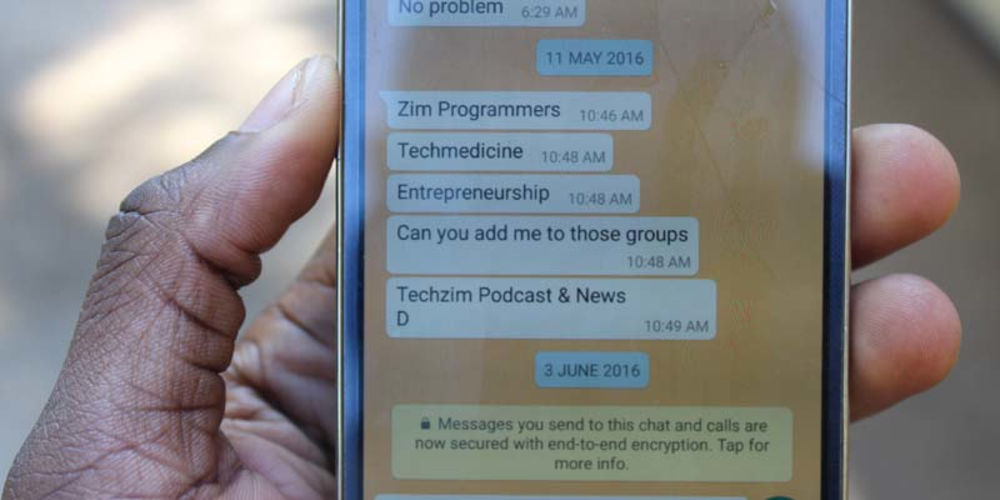Unveiling the Fortress: The Strength of WhatsApp's End-to-End Encryption

In an era where digital communication has become the backbone of our daily interactions, the significance of secure messaging platforms cannot be overstated. WhatsApp, with its 2 billion user base, stands out not just for its user-friendly interface and feature-rich service but more so for its robust security framework, central to which is its end-to-end encryption protocol. This security measure ensures that the messages you send are for your recipient's eyes only, turning your conversations into impenetrable fortresses. But what is the secret sauce that makes WhatsApp's end-to-end encryption so formidable? Let's delve into the technology and principles that fortify this digital stronghold.
Introduction to End-to-End Encryption

Understanding the wonder of WhatsApp's encryption requires a grasp of end-to-end encryption (E2EE) basics. E2EE is a secure communication technique that bars any third-party interference, ensuring that only the communicating users can access and understand their messages. This guarantees that solely the message sender and receiver can decipher the content, rendering it inaccessible even to WhatsApp, the service enabling the conversation.
The Signal Protocol: The Foundation of WhatsApp's Encryption
At the heart of WhatsApp's E2EE is the Signal Protocol, developed by Open Whisper Systems. It's a sophisticated framework that combines the Double Ratchet Algorithm, prekeys, and a three-phase key exchange mechanism to provide cryptographic security for the platform's messaging and call functionalities. Here's a breakdown of these components:
- Double Ratchet Algorithm: This algorithm allows the communication session's encryption keys to be continuously updated, making it significantly more difficult for potential eavesdroppers to decrypt a series of messages even if they manage to get their hands on a key.
- Prekeys: These are essentially bundles of public keys that are used to initiate conversations between users who have never communicated before, ensuring that their first interaction is as secure as subsequent ones.
- Three-Phase Key Exchange: This process, which involves combining the X3DH key agreement protocol and the Double Ratchet Algorithm, ensures that each message has a unique key for encryption and decryption, adding an additional layer of security.
Why WhatsApp's Encryption Is Considered Robust
- Forward Secrecy: Due to the continuous updating of encryption keys (thanks to the Double Ratchet Algorithm), even if a key is compromised, past messages remain secure because they were encrypted with a different key.
- Backward Secrecy: Similarly, future messages remain secure because they too will be encrypted with new, unrelated keys.
- End-to-End Privacy: Only the communicating users have the cryptographic keys to decrypt their messages. Not WhatsApp, not cybercriminals, not even governmental agencies.
- WhatsApp includes functionality enabling users to authenticate the security codes of their contacts, guaranteeing that their dialogues are safeguarded and conducted with the correct person.
The Challenges and Controversies

No system is without its challenges, and WhatsApp's E2EE is no exception. The platform has faced criticism for its potential to shield illegal activities, given the level of privacy it offers. Additionally, the reliance on users to manually verify their communication partners' security codes can be seen as a vulnerability if not regularly practiced.
Conclusion: A Beacon of Digital Security
In the realm of cybersecurity hazards, WhatsApp's implementation of end-to-end encryption represents its dedication to protecting user privacy and security. Utilizing the advanced Signal Protocol and maintaining forward and backward secrecy principles, WhatsApp guarantees the security of its users' conversations against external intrusions. Despite facing obstacles and debates, the messaging behemoth's initiatives to secure online communications position it as a pillar of digital safety in today's era.

In conclusion, the secret sauce of WhatsApp's encryption is not just in the technology itself but in the implementation of a comprehensive, user-centric security framework. This approach not only secures the platform but also empowers users with the knowledge and tools to protect their digital interactions, making WhatsApp's end-to-end encryption a robust fortress in the realm of secure communication.






Leave a comment